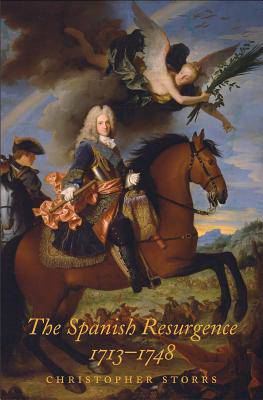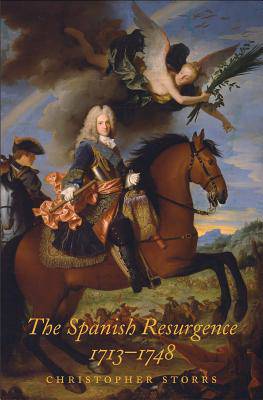
- Afhalen na 1 uur in een winkel met voorraad
- Gratis thuislevering in België vanaf € 30
- Ruim aanbod met 7 miljoen producten
- Afhalen na 1 uur in een winkel met voorraad
- Gratis thuislevering in België vanaf € 30
- Ruim aanbod met 7 miljoen producten
Zoeken
Omschrijving
A major reassessment of Philip V's leadership and what it meant for the modern Spanish state Often dismissed as ineffective, indolent, and dominated by his second wife, Philip V of Spain (1700-1746), the first Bourbon king, was in fact the greatest threat to peace in Europe during his reign. Under his rule, Spain was a dynamic force and expansionist power, especially in the Mediterranean world. Campaigns in Italy and North Africa revitalized Spanish control in the Mediterranean region, and the arrival of the Bourbon dynasty signaled a sharp break from Habsburg attitudes and practices. Challenging long-held understandings of early eighteenth-century Europe and the Atlantic world, Christopher Storrs draws on a rich array of primary documents to trace the political, military, and financial innovations that laid the framework for the modern Spanish state and the coalescence of a national identity. Storrs illuminates the remarkable revival of Spanish power after 1713 and sheds new light on the often underrated king who made Spain's resurgence possible.
Specificaties
Betrokkenen
- Auteur(s):
- Uitgeverij:
Inhoud
- Aantal bladzijden:
- 328
- Taal:
- Engels
- Reeks:
Eigenschappen
- Productcode (EAN):
- 9780300216899
- Verschijningsdatum:
- 25/10/2016
- Uitvoering:
- Hardcover
- Formaat:
- Genaaid
- Afmetingen:
- 165 mm x 239 mm
- Gewicht:
- 589 g

Alleen bij Standaard Boekhandel
+ 83 punten op je klantenkaart van Standaard Boekhandel
Beoordelingen
We publiceren alleen reviews die voldoen aan de voorwaarden voor reviews. Bekijk onze voorwaarden voor reviews.











